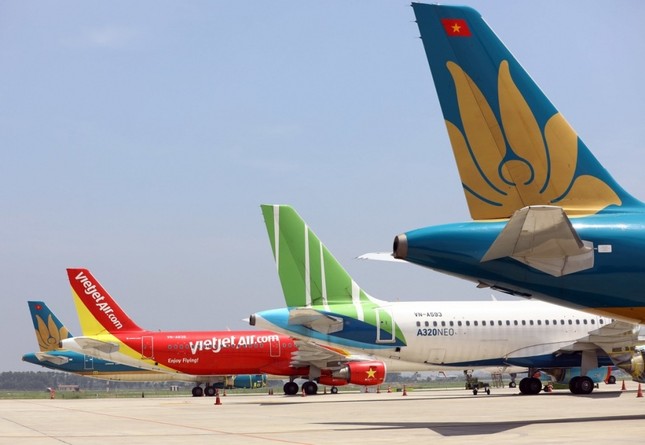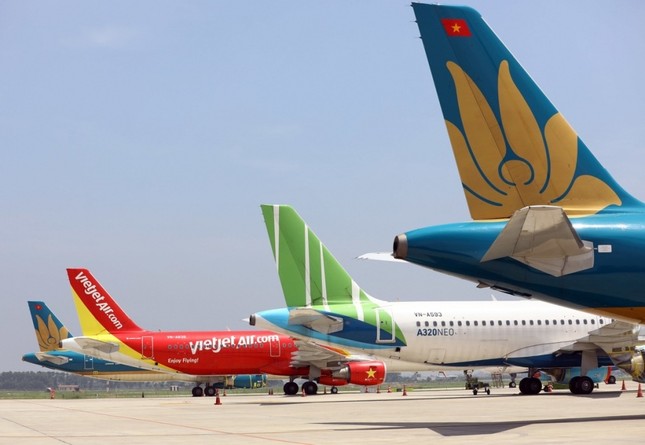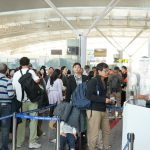Voters in Ho Chi Minh City have expressed concerns about the recent increase in domestic airfare prices. They have requested that the Ministry review the various fees and charges, analyze the cost structure, and evaluate the reasonableness of the ticket prices in relation to the airlines’ operational costs and ground service providers.
In response, the Ministry of Transport provided an explanation by referencing the Circular No. 17/2019/TT-BGTVT dated May 3, 2019, issued by the Minister of Transport. This circular sets out the framework for domestic air transport service prices, outlining the components that make up airfare prices: the passenger transport service fee, value-added tax (VAT), fees for passenger terminal services and security, and additional service fees determined by the airlines.
According to a report by the Civil Aviation Authority of Vietnam, based on data from Vietnam Airlines and Vietjet Air—the two carriers with the largest domestic market share—the cost structure of a flight in 2023 is as follows: Fuel costs account for 37-42%; aircraft-related costs, including maintenance and repairs, make up 32-41%; flight-related costs (ground handling, flight operations, etc.) represent 6-7%; and the remaining costs, including direct labor, sales, management, and passenger services, account for 16-19%.
The costs associated with flight-related services, such as ground handling and flight operations, have a minimal impact on overall expenses, accounting for only 6-7% of the total cost of a flight.

Illustrative image: CAA.
The Ministry of Transport also highlighted that the prices of certain services in the aviation industry are regulated by Circular No. 53/2019/TT-BGTVT dated December 30, 2019, which sets out the price levels and frameworks for specialized aviation services at Vietnam’s airports.
In reality, the prices of services stipulated in Circular No. 53/2019/TT-BGTVT have remained stable for an extended period and have not undergone any adjustments.
From the beginning of the year until now, the average economy-class airfare on several routes, including taxes and fees, offered by Vietnamese airlines has increased compared to the same period in 2023. However, the Ministry of Transport’s inspection of the ticket sales practices of these airlines found that they complied with the regulations regarding the maximum price for basic economy-class tickets on domestic routes.
The increase in airfare prices by Vietnamese carriers is in line with global trends and is influenced by market supply and demand dynamics, such as reduced aircraft fleet operations and increased travel demand during holidays and festivals, as well as rising fuel prices and exchange rates.
Given the current situation and forecasts, the Ministry of Transport is committed to implementing comprehensive and effective solutions to help alleviate the pressure on airfare prices. These include ensuring a stable aviation transport force, optimizing flight schedules, reducing aircraft turnaround time, increasing night flights, and implementing measures to offset the shortage in transport capacity due to the reduced aircraft fleet.
The Ministry will also enhance the implementation and supervision of pricing declarations, price listings, and transparency in accordance with the law. Additionally, passengers are advised to plan their trips in advance and book early to secure tickets at more affordable prices.
What will Vietnamese aviation look like in 2024?
The Vietnamese aviation market is currently in line with the Asia-Pacific region and is expected to fully recover by the end of 2024. However, there are still numerous potential risks lurking.


















